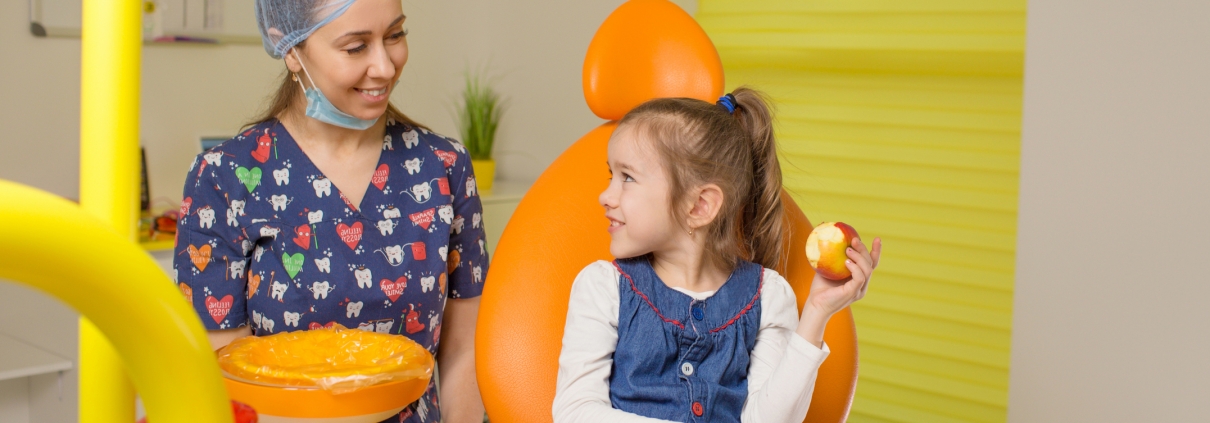Delayed eruption of permanent teeth
Permanent teeth
Permanent teeth, the secondary set of teeth, include 32 teeth, which begin to grow from five to seven years of age and are completed at the age of 17 to 23 with the growth of third molars, or wisdom teeth. The first permanent tooth appears at the age of 6. A very important and key point is that permanent large molar teeth grow in a space where there was no milk tooth before, this issue makes some parents think that this is a milk tooth and therefore do not pay enough attention to it.
When should baby teeth fall out?
It is difficult to predict the lifespan of baby teeth. But it is assumed that the lifespan of milk teeth is one decade. However, if the permanent tooth is not in place and is not ready to grow and come out and does not stimulate the baby tooth, the baby tooth will have a longer life. Of course, sometimes milk teeth fall out without stimulation of permanent teeth.
If the permanent teeth have not grown or if they are in the gums but do not come out, the dentist should intervene to see what is happening. In cases where the permanent tooth has grown in place naturally but does not come out of the gum, the position and angle of the unerupted tooth in relation to other permanent teeth that have grown, determines what the dentist should do for this tooth. do it. Most of these cases are not worrisome and dentists raise these teeth with methods and tools. Of course, if the adjacent teeth do not cause a problem, in which case jaw surgery and orthodontics will be needed.
Reasons for permanent teeth not to erupt
Many factors cause baby teeth to fall out late or permanent teeth not to erupt on time. The most common cause of delay in permanent tooth eruption is the absence of this tooth. The permanent tooth, which is normally under the milk tooth, pushes the root of the milk tooth aside and makes it loose. Absence of permanent teeth occurs in 2.5 to 6.9 percent of cases. This condition is more common in women than men.
Among other reasons for permanent teeth not coming out, we can mention injuries, blockages, non-alignment of permanent teeth under baby teeth, trauma, infection, and late eruption of permanent teeth. Among other negative factors, the following can be mentioned:
Genetics :
Genetics can play an important role in growth factors, including teeth growth. Some genes cause permanent teeth to erupt later in some children. If your milk tooth fell out later than other children of the same age, your child will probably experience this situation as well.
Remember that hereditary and genetic factors can largely determine the course of some events in your child, so do not forget that if you had certain conditions in childhood, the possibility that your child will also experience such conditions is out of mind. is not
Nutrition :
The teeth of malnourished children grow later than children of the same age. In today’s industrial world, most children have natural nutrition and as a result, they will grow well. But if your child is very picky and does not eat many types of food, he may face problems in terms of receiving food and this will affect the growth of his teeth.
Socio-economic factors also play a big role in the growth of teeth. Children who grow up in poor families grow their teeth later than their classmates who have financial prosperity. The cause is probably the difference in nutrition quality, environmental toxins and stress.
Gender:
Most parents know that girls start talking faster than boys and open their tongues. Also, girls mature faster than boys. This is also true for teething, and girls experience teething a little earlier than boys (usually four to six months).
So, if you have a boy who has not yet erupted a tooth, don’t worry, it is permissible to delay the eruption of permanent teeth for up to six months, but if after this period of time there are still no signs of teeth eruption, it is necessary to consult a pediatric dentist. Have a consultation
Body size:
Children who are physically older, their teeth grow earlier than younger children. In addition, babies who were born prematurely or were small during the fetal period, their permanent teeth also erupt later than children of the same age.
This incident may worry you a little, but don’t forget that the physical ability to grow teeth is also one of the points that should be taken into account, but we emphasize again that all these conditions are only points that happen temporarily and Your child’s tooth will come out at the right time, and if this does not happen, you need to consult a dentist
Sickness :
In rare cases, the delay in the growth of teeth may indicate the presence of a disease in the child. Hormonal factors play a big role in the growth of teeth, so children who have thyroid or pituitary problems often grow their teeth later. Deformities of the jaw and lack of minerals also cause a delay in the growth of teeth.
You should not worry about children whose teeth erupt a little later than others, but if the child’s milk teeth have not started to fall out at the age of 7 or 8, see a pediatric dentist.

